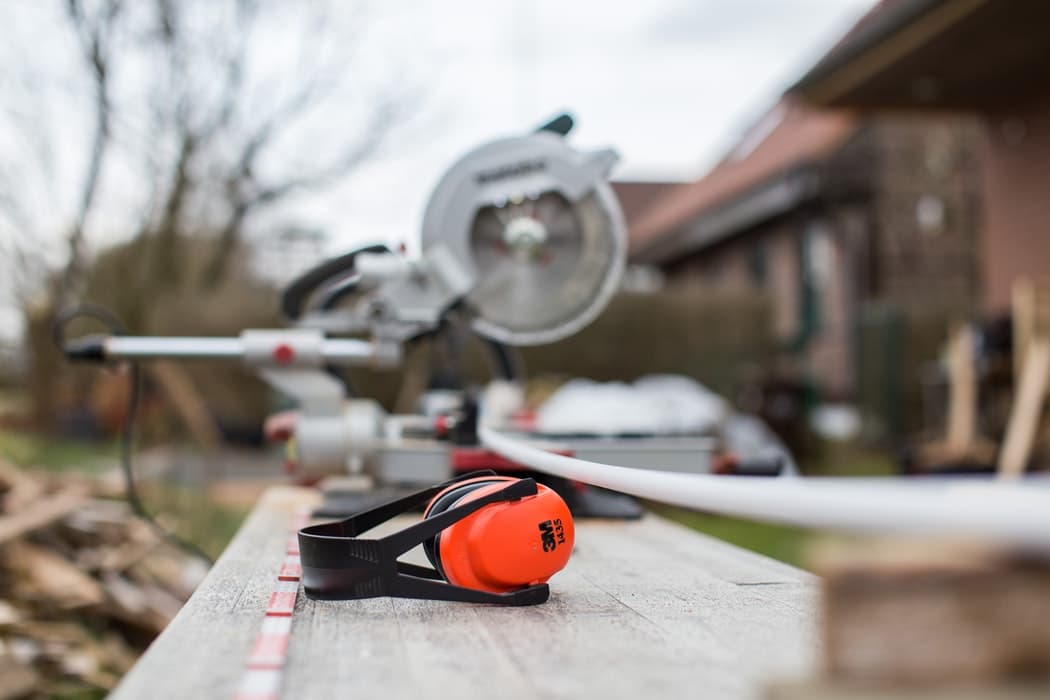
Suffice it to say, a sweating toilet tank is never welcomed. Between puddles of pooling water on the floor, to the unpleasant feeling of condensation in the air, mould growth, and a malodorous smell, using the restroom can quickly turn into something quite dreadful. Is your toilet tank humid without fail and you’re unsure how to fix this problem? A toilet tank anti-condensation liner kit will solve the issue in no time! Check out the following to learn more about it.
Causes and Effects of a Sweating Toilet Tank

Source: Canva
Condensation around a toilet tank is usually a result of the toilet tank water being colder than the bathroom’s ambient temperature. Thus, the cold tank sweats when it’s exposed to the warmer and humid air in the bathroom. This is a frequent occurrence in the winter, as the bathroom is kept at a warmer temperature during this period. In fact, the tank water derives from the household’s general water supply, which is kept at about 3°C, while the room’s ambient temperature, during winter, is higher and over 20°C. The 15° temperature difference between the two results in visible condensation on the toilet tank.
Before delving into the toilet tank anti-condensation liner kit that’ll offset this problem, let’s go through all the causes of condensation, as well as the various effects that can trickle down as a result.
Causes
A too-high level of humidity in the bathroom can be a result of diverse factors. First off, it’s important to discern the cause of sudden condensation around your tank to employ the necessary fix.
A frequent water flow can lead to a temperature difference between the water in the tank and the ambient temperature within the zone in which it’s located. This occurs in homes inhabited by numerous individuals, where the device is used a little too frequently. That’s why, for such dwellings, purchasing low-flow toilets is recommended.
The water shut-off valves can also create little water droplets around the toilet tank. With faulty valves, cold water that hasn’t reached optimal temperatures can easily flow into the tank, which results in condensation building up around the toilet tank.
Poor ventilation or lack thereof in the bathroom can also lead to a sweating toilet tank. Ventilation system failure can cause excess humidity, which then causes water droplets to form on the walls of the toilet tank. In such cases, a ventilation device or window allowing natural airflow inside the room can help remedy the issue.
A bathroom door that once shut will seal off can cause high levels of humidity in the restroom, which then produces a buildup of water droplets around the tank.
An especially humid room can also cause this problem. In some apartments, the clothes dryer is located in the bathroom. Also, some people, due to a lack of space, will hang their clothes on towel bars, which also contributes to the buildup of humidity in the bathroom, an area that’s prone to humidity, to begin with. Consequently, the excess moisture will cause sweat to collect on the surface of the toilet tank.
A bathroom within which the baseboard heaters and the hot water pipes are in proximity to the toilet can be favourable to condensation.
Effects
Although it might seem like there aren’t any dire consequences at first, the sweating toilet tank phenomenon can cause serious damage in the long run. In fact, if appropriate measures aren’t taken at the first sign of water droplets, the latter can increase the humidity level of the bathroom, which leads to, without a doubt, an unpleasant smell. The water buildup can damage flooring such as hardwood, and cause water damage to the underflooring. In this environment, the ceiling isn’t completely sheltered from mould, and iron elements like the tank and bolts can begin to rust. Permanent humidity will lead to mould and the growth of other microorganisms. On top of causing a lot of damage and being overall costly, excess humidity can also cause the occupants of the home to develop respiratory issues.
And that’s why it’s important to act in a timely manner. Insulating your toilet tank with a liner kit will limit the condensation as well as the damage that these could cause in your bathroom, as well as within the structural components of the building, and to your health.
As a follow-up to the causes and effects of condensation buildup around a toilet tank, let’s delve into how to properly use a toilet tank anti-condensation liner kit to help fix the issue at hand.
Toilet Tank Liner Kit Solution

The anti-condensation liner kit is exactly what it sounds like: a liner that’s inserted into the toilet tank to prevent condensation from forming along the exterior walls of the tank, thus preserving the condition of the bathroom floor and shielding it from potential water damage. Its installation forms a sort of barrier that limits contact between the walls of the waste water tank and the cold water it contains. These anti-condensation kits for toilet tanks are available in hardware stores and via plumbing fixture retailers. The kit will usually include an insulation foam board, adhesive, a tool to apply the adhesive, and an instruction booklet. However, some kits have self-adhesive boards, which means the glue isn’t required.
To give you an example of a toilet tank liner, there's the Keeney anti-condensation toilet tank liner kit. Made of plastic and measuring 16 in x 48 in, it’s available for roughly $48.98. This insulation kit is ideal for houses with a well, which supplies very cold water. This brand of toilet tank liners is self-adhesive and easy to install.
Toilet Tank Liner Installation
The anti-condensation toilet tank liner is easy enough to install; you can do it yourself. Otherwise, you can hire a qualified plumber to carry out the task. Detailed below are the steps to guide you should you decide to take the DIY route:
Before starting, drain the majority of the water inside the toilet tank. Remove the toilet tank cover and set it aside. Make sure the water is properly drained so that only a small amount of water remains in the tank.
Next, clean the tank. Use an all-purpose cleaner and scrub the interior walls of the tank with a scrub brush. Rinse your brush every now and again with the leftover water in the tank. Cleaning the tank prior to installing the liner allows for better adherence.
After having scrubbed to tank, rinse it with clean water and, this time around, make sure all the water is drained. You can use a turkey baster to suck up the remaining water at the bottom of the tank, or you can also use a sponge.
The inside of the tank must be entirely dry before installing the liner. To eliminate any and all traces of water, you can use a high-velocity hair dryer.
Eyeball the size and shape of the bottom of the tank so that the liner isn’t too big or too small for the surface. Then, cut the liner to mould it to the tank’s shape.
Stick the liner on the bottom and sides of the tank. Make sure to apply a bit of pressure when installing the liner to ensure it sticks to the walls, then wait 8 to 12 hours before filling up the water tank again. The waiting period will allow for the insulation’s sticky side to properly adhere. Put the cover back on, and voilà! Your toilet tank is now protected against condensation. Say goodbye to water droplets!
Note: To prevent water droplets from forming around your water tank, we advise you to, on top of installing a toilet tank liner, reduce the humidity level in your bathroom after taking a shower or bath. To do so, turn on the bathroom fan or air conditioner, and if possible, leave the door open. You can also use a dehumidifier in your bathroom if necessary.
Get 3 renovation quotes for your toilet tank insulation project
RenoQuotes.com will put you in contact with 3 reliable contractors for your toilet tank insulation project. Fill in the form on our homepage (it only takes a few minutes), and you will receive quotes from trusted professionals.
Dial 1-844 828-1588 to speak with one of our customer service representatives.
Looking for something else?
Related articles
The latest industry news, interviews, technologies, and resources.

Editorial Team
•05 Aug 2024
Have you purchased an old house with an equally aged structure? Despite completing renovation work over the years, odds are, your household plumbing pipes are still exposed. So, the question is, how can you make exposed piping aesthetically pleasing? Here are seven hacks to conceal your plumbing pipes or, at least, make them a little more visually appealing.

Editorial Team
•08 Nov 2023
Whether choosing to renovate the kitchen or bathroom, ceramics are an excellent choice as they allow you to conceive designs as diverse as they are original. Available in a large variety of styles, ceramics make it easy to create custom pieces as they offer an infinite range of possibilities.

Editorial Team
•08 Nov 2023
Considering updating your bathroom but unsure where to start? A bathroom is one of the most used spaces in a house and as such, it should be both comfortable and functional. Being that it’s so frequently used, an ideal bathroom is one which doesn’t wear out easily and makes use of materials that stand up over time.

Amanda Harvey
•17 Feb 2025
Water infiltrations into your basement can be caused by a wide variety of things. These can include heavy rainfall on the building's envelope, poorly sealed windows, doors and exterior walls as well as storm sewers backing up.

Léa Plourde-Archer
•08 Nov 2023
Relationships between neighbours can be affected when a punctual event starts to disturb the usual tranquil atmosphere. Oftentimes, home renovation projects can be one of the events that serve as a trigger to provoke conflicts. Fortunately, this is a situation that can easily be resolved by conducting a fair and balanced discussion between the involved parties. However, in some rare cases, things may unravel and cause real problems.